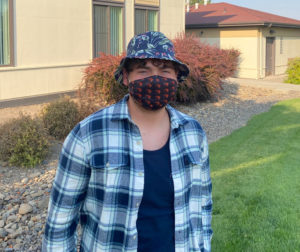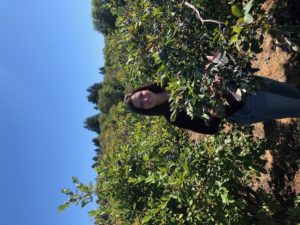Hello! My name is Joseph O’Brien, and I am from Boardman, Oregon. I am currently co-attending the Oregon Health and Science University School of Nursing and Eastern Oregon University in La Grande, Oregon, for the class of 2023. I am on track to earn two bachelor’s degrees, in nursing and in science in health and human performance with a concentration in exercise science.

Growing up, I was very involved in the youth organization 4-H. I raised and showed an abundance of livestock animals, participated in many projects (shooting sports, junior and teen leadership, etc.), held leadership roles within my club and county (club president, Morrow County ambassador, etc.), volunteered at community service events within the surrounding communities of my hometown, and much more. Sometime in the future, I would like to become a 4-H project leader and volunteer with the youth in the community I reside in.
Once I graduate with both of my undergraduate degrees and obtain my nursing license, I would like to travel to different American Indian/Alaskan Native tribal clinics within Oregon to help serve underrepresented communities. Additionally, I would like to obtain my wound care certification and relocate to eastern Oregon or Washington to work in a wound clinic.
I was one of the inaugural participants in the OSU Extension Service student internship in 2020, and I’ve returned this summer to the OSU Extension Service office in Umatilla County. As I enter this internship for the second time, I am very appreciative for my experience last year. Last year, many people had to adapt to working virtually – me included. The hardest challenge was not having the ability to connect with as many community members as I would have liked. With that said, I would not have changed the experiences and opportunities presented throughout last summer.
During our orientation this year, the other county interns and I were given a presentation about the four “Ps” within the Extension Service: People, Places, Programs, and Partnerships. In relation, my work this summer will be focused on collaborating with the Extension Open Campus/Juntos and 4-H programs.
I am very excited to connect with youth in Morrow and Umatilla counties, teach new or enhance educational content taught within the school districts, and conduct team-building activities that are fun and engaging! I will also help with the Umatilla and Morrow county fairs; assisting judges and show clerks at the livestock rings, setting up 4-H program educational booths and displays, and much more.
One of my biggest personal goals for this summer is to meet new people and listen to their stories, find hidden places within my community where learning and teaching can be taught or further enhanced, collaborate with other programs within the Extension Service, Morrow County, and Umatilla County to provide the best experiences for youth during workshops and camps, and find value/recognize the old, current, and new personal or county-wide partnerships throughout this internship experience.
Remember to stay safe and well!









